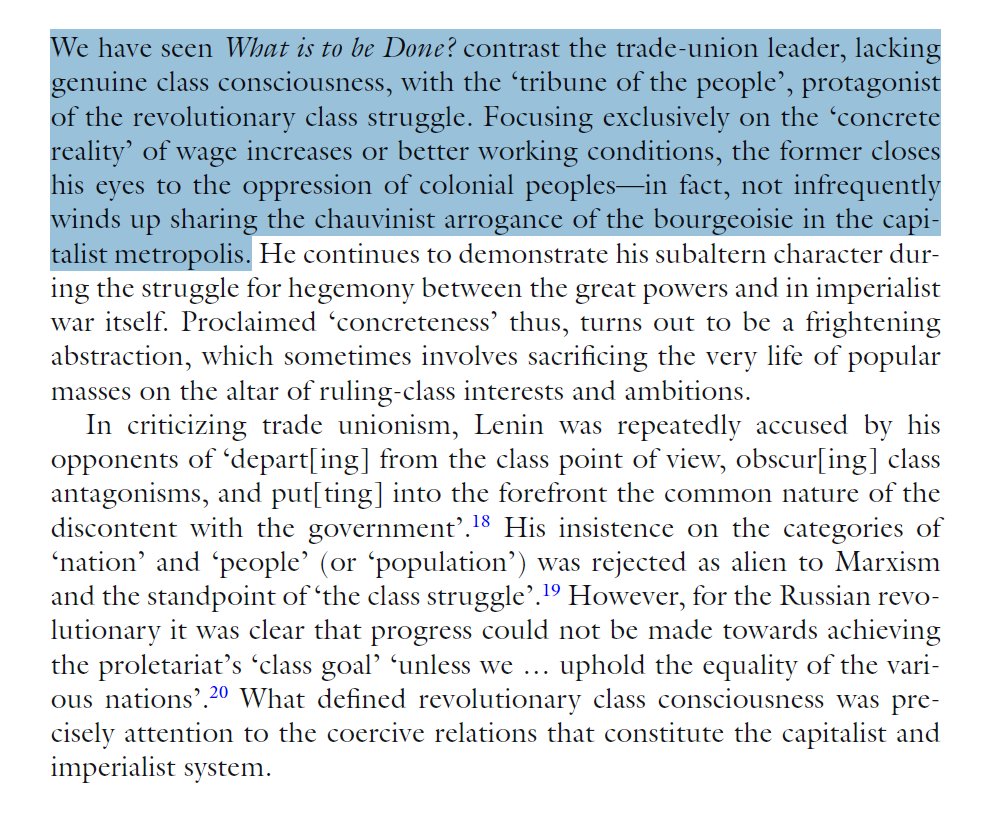

The Eurasian nuthatch is my favorite because it often walks down tree trunks, upside down while facing the ground.

And I have to give an honorable mention to Bulwer’s pheasants for obvious reasons.
Photo:

☭


The Eurasian nuthatch is my favorite because it often walks down tree trunks, upside down while facing the ground.

And I have to give an honorable mention to Bulwer’s pheasants for obvious reasons.



I’ve got basically the same story, except I disovered lemmygrad later on.


Nerd or geek culture was quite reactionary for a long time now. It’s a product of the (predominantly white male) western bourgeoisie and labour aristocrats, and its links to racism and sexism go quite deep.
This 3-page article (page 1, page 2, page 3) does a good job at analyzing these cultural aspects. It’s a very interesting read.
Here’s an excerpt from the introduction:
As geekdom moves from the cultural fringes into the mainstream, it becomes increasingly difficult for the figure of the geek to maintain the outsider victim status that made him such a sympathetic figure in the first place. Confronted with his cultural centrality and white, masculine privilege—geeks are most frequently represented as white males—the geek seeks a simulated victimhood and even simulated ethnicity in order to justify his existence as a protagonist in a world where an unmarked straight white male protagonist is increasingly passé.
Our investigation proceeds through three core concepts / tropes prevalent in geek-centered visual narratives:
- “geek melodrama” as a means of rendering geek protagonists sympathetically,
- white male “geek rage” against women and ethnic minorities for receiving preferential treatment from society, which relates to the geek’s often raced, usually misogynistic implications for contemporary constructions of masculinity, and
- “simulated ethnicity,” our term for how geeks read their sub-cultural identity as a sign of markedness or as a put-upon status equivalent to the markedness of a marginalized identity such as that of a person of color.
We analyze these tropes via an historical survey of some key moments in the rise of geek media dominance: the early-20th century origins of geekdom and its rise as an identifiable subculture in the 1960s, the mainstreaming of geek masculinity in the 1970s and 80s via blockbuster cinema and superhero comics, and the postmodern permutations of geekdom popularized by Generation X cultural producers, including geek/slacker duos in “indie” cinema and alternative comics.


I’ve started reading it in December, and I’m also really liking it! Way ahead of it’s time compared to mainstream Russian politics and philosophy of the 1860s, and despite not coming into contact with Marx & Engels, Chernyshevsky’s own philosophy is remarkably close to dialectical materialism. It’s a book that should definitely be more widely known, especially among Marxists. A rare piece of great revolutionary literature!


Based on this comment, I think you’d also enjoy Gramsci’s The Revolution against Das Kapital (1917)!


How to properly use dialectical materialism
I think the first step is learning what exactly dialectical materialism is and then how to apply it to any topic. Some classics are Stalin’s ‘Dialectical and Historical Materialism’ and Mao’s ‘On Contradiction’, both of which I do recommend. However, you might find also these essays helpful:
Lenin’s notes ‘On the Question of Dialectics’
‘What is Dialectics?’ by Roderic Day
Sean Sayer’s critique of mechanical materialism and analytical methods
Or, if you’re more biologically inclined, you might enjoy the book ‘The Dialectical Biologist’ by Levins and Lewontin, especially the last chapter ‘Conclusion: Dialectics’ where they lay out the dialectical system and go through various examples and comparisons. If you’re interested in a more purely philosophical approach, Lenin’s ‘Materialism and Empirio-criticism’ is an amazing book!
All of these are some of the best resources I’ve found and used when learning about dialectical materialism in general, but when studying any Marxist author you can find dialectical materialism being applied and discern the method, and find general principles in their particular examples. Recognizing these aspects does take some practice, but getting familiar and comfortable with dialectical materialism in general will help a lot.


Yes, I also quite like NYE, I don’t know why he chose to write about it in particular, maybe it was worse in his time. However, his point about about bourgeois holidays and commemorations of historical events that have no meaning to the vast majority of today’s people I find to be correct. There are several such “holidays” in my country which the bourgeoisie basically forces, and which the majority of people don’t care about. I guess getting the day off is still nice though.


I agree, it has that vibe a bit, and I have no particular problem with New Year’s, but his general point is definitely correct when it comes to some bourgeois holidays and commemorations of specific historical events that really don’t have any meaning to the vast majority today. I can think of several examples that are “celebrated” in my country.
Your comment here is way too favorable to the tzar. There was plenty of racism against the non-Russian peoples in the empire. Plenty of pogroms and other horrors committed. The “Great Russians” were very chauvinistic in their attitude towards the other nationalities, and were very privileged in what positions they could occupy, for example. An important part of Bolshevik propaganda was fighting against racism and “Great Russian” chauvinism.
From Walter Rodney’s ‘The Russian Revolution: A View from the Third World’:
There was a group of people known as Russians, who ruled over Finns, Poles, Latvians, Lithuanians, Georgians, Ukrainians, Armenians, Mongolians, and Turks, to name just a few. The Russians monopolized political power and sent their governors and settlers into the countries of these other peoples. As in all colonial states, there was a legal distinction between the citizen (Russian) and the colonial subject. The constitution of Tsarist Russia explicitly based discriminatory measures on the racial or national origin or religion of those affected. It was in some ways like the distinctions made under Portuguese and Belgian colonialism, and under South African and Rhodesian apartheid. In other words, Russian colonial rule hardly differed from that of the Western European powers. The British sent warships; the Russians sent the Cossacks. When its colonial subjects revolted, as Georgian workers and peasants had during the 1905 Revolution, the tsar, as we’ve seen, agreed to a few minor reforms but ultimately crushed the uprising and reverted to the old system of colonialism.
Every colonial relationship in history has involved cultural domination, namely the imposition of language, religion and way of life on the subjugated peoples. In the Russian Empire, there were numerous other religions apart from the Russian Orthodox church. None of these were respected. The Catholics in Polish Russia were persecuted. The Jews were hounded wherever they were found, especially in the Ukraine. The Muslims were treated as enemies of Christian civilization. And those elements of the population who believed in their own family gods and traditional religion were the most despised of all, in the same way that European missionaries came to Africa and denounced African religion as devil worship and black magic. […] When faced with a more technologically advanced culture, such groups were victims of genocidal policies.
I’m not sure what point you’re making here. Russian colonialism doesn’t change the importance of settler-colonialism in general and specifically in the US. The USSR was built on a basis of national liberation, and not on the “Great Russian” identity which would be analogous to the US identity here.
Another difference is that the US is entirely settler colonial, a whole country founded solely by settlers, while the Russian empire’s colonies were all still tied to the metropolitan core in western Russia. The US was created through a revolt of the most reactionary settlers that wanted autonomy from Britain. The path forward for North America is strictly decolonial.
the basis is capitalist
And also settler-colonial, which is a very important factor when it comes to culture in this sense.


I appreciate you reposting these threads to lemmygrad now as the twitter algorithm usually seems to not want to show them to me.


Also: https://redsails.org/the-pitfalls-of-liberalism/
The most perturbing question for the liberal is the question of violence. The liberal’s initial reaction to violence is to try to convince the oppressed that violence is an incorrect tactic, that violence will not work, that violence never accomplishes anything.
The liberal is so preoccupied with stopping confrontation that he usually finds himself defending and calling for law and order, the law and order of the oppressor. Confrontation would disrupt the smooth functioning of the society and so the politics of the liberal leads him into a position where he finds himself politically aligned with the oppressor rather than with the oppressed.
The reason the liberal seeks to stop confrontation — and this is the second pitfall of liberalism — is that his role, regardless of what he says, is really to maintain the status quo, rather than to change it.


Because many of them don’t actually support Palestinian liberation, and are, as you suggest, still holding on to their liberalism even if they claim not to. Their support manifests only in an empty verbal declaration without any actual understanding.
Take a look at this article which illustrates and analyzes the problem well. An excerpt:
Some people understand being in favour of something as a kind of thought act: it happens in one fell swoop in the realm of intentions, and it can be verified by a simple declaration of support. It is enough for me to declare I’m in favour of, for example, abolishing the patriarchy, or capitalism, for these people to believe me. But what if I’m in favour of a general objective and at the same time opposed to every specific step needed to achieve it? Let us start by imagining how this contradiction might play out in the context of a simpler problem than patriarchy or capitalism: water is leaking through a hole in my roof. I am in favor of the overall goal of stopping the leak, but I insist on some strange rules. For instance, I decide that only supernatural beings can handle the problem. Or I forbid anyone from walking on the roof while fixing the leak. Or people may walk on my roof, but I demand that they refrain from using ladders or any other tool to get up there. Or they may use a ladder, but only after climbing onto the roof, never before. So long as I am imposing such conditions, what does it matter that I profess my desire to solve the problem? No matter how much I see myself as enemy number one of the leak, in practice I am actually in favour of keeping it around. Therefore, just saying that I’m in favour of a given objective is not enough. My declarations carry weight only when I support them with a thorough understanding of the steps needed to reach that objective and when I allow these steps to be executed in the necessary order.


I agree with you. The shock can be useful during radicalization at first, but the point is to stop being shocked and understand how these things work rationally in order to change them. Similarly, I don’t like how many are still shocked by some soc-dem politicians “betraying” us when it has always been clear that they’ve never been with us in the first place. Not being shocked anymore (unless it’s out of a defeatist resignation) is a good thing because it means you understand how things actually work. We want people to move past shock to an understanding and action.
Check out these two twitter threads (thread 1, thread 2) and this article for a different reading of Marx’s On the Jewish Question.
I think you’re somewhat failing to take into account how much antisemitizam there was in Europe and how prevalent it was, especially in the 19th and 20th centuries. Marx is writing about Jews in Europe in the mid 19th century, and is responding directly to widespread antisemitic rhetoric - “The Jewish Question”.
Anticommunists will always misrepresent us and everything we do, we don’t need to pander to them in any way. There are plenty of other people that will listen to us and be open to our ideas. Liberals (active political liberals, not the average “apolitical” person in the west) are not a group we can radicalize and we shouldn’t focus our efforts on them.
Also, the theory that people are brainwashed by propaganda is not scientific or Marxist and we shouldn’t use it. It leads to a dead end in terms of tactics to fight propaganda. Check out the full article I linked above for a Marxist theory of how propaganda works.
I would say that What Is To Be Done? is one of Lenin’s most important works, if anything I’d say it’s underrated. Like (mostly) all of his works, it talks directly about the situation in Russia at the time, but that doesn’t make it any less useful. You just have to extract the universal principles from the tactical particularity he’s writing about.
WITBD? focuses on the need for organizing, and not just any kind, but actual revolutionary organizing with both theory and practice, for bringing together the proletariat with all other revolutionary classes and even individual intellectuals. It speaks against just focusing on a binary interpretation of class struggle (proletariat vs bourgeoisie), and instead it tells us to focus on any struggle that is revolutionary (anti-colonial struggles, gender liberation struggles, etc.).
Here’s how Losurdo describes it in Class Struggle:

The claim that a triumphant will is all it takes to overcome it
No, the claim is that people have enough knowledge and access to information that they can debunk any piece of propaganda they see, but they make the rational choice not to and instead go along with it. This choice is not some free will idealistic choice, it happens due to the material conditions in which the people live and the social purpose of propaganda which lets them easily justify their dominant global position as a westerner. The point is that they don’t have an actual excuse for “believing” propaganda, but that they go along with it mostly because they want to keep their privilege (or see it as a way to get some), even though on some level they know it’s a bad thing.
I agree generally, especially in terms of material gain to these people and potential reparations, but I also think that personal guilt should be determined on a case by case basis. However, every racist white westerner screaming about Hamas terrorists right now, when plenty of people are sharing actual correct information, is definitely complicit and is purposefully ignoring the evidence he is being given. Similarly, the outrageous stories about the DPRK that are circulated by the various CIA outlets or Yeonmi Park are simply too ridiculous for anyone to actually believe and take seriously, yet until recently people mostly shared them with glee. People go along with them due to other reasons, not an actual belief. Stories about Xinjiang are also not shared because people actually care and tried to inform themselves about the situation, but only due to (real or perceived) material gain (or even just emotional satisfaction) that the people sharing them get.
I think this reply perfectly justifies Roderic’s position on seriousness. You just strawman his argument to mean “100% seriousness all the time, no fun allowed at all” and then proceed to write some nonsense against it.
Do you really think the western left is serious enough? What has it accomplished? Do you think others will take us seriously if we don’t take ourselves seriously, and how can we accomplish anything at all, let alone revolution, if we’re not serious about it?